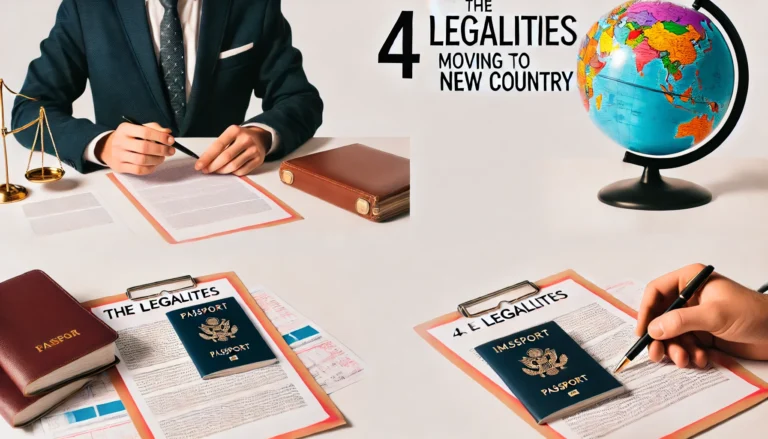Moving to a new country can be exciting and life-changing. But along with the excitement, there are important legal steps to take care of. From getting the right visa to understanding the laws in your new country, there are key legal things you need to know before you move.
It’s important to be prepared. In this post, we’ll cover the main legal issues you should consider when moving abroad. By the end, you’ll have a clearer idea of what needs to be done to make your move easier and smoother.
Let’s get started and explore these important legal steps!
1. Visa Requirements
Common visa types include permanent residency, student, work, and tourist visas. To get started, research the specific visa options available in your destination country.
For instance, some countries may have straightforward processes for work visas, especially if you have a job offer. Others might require sponsorship from an employer, which can complicate matters. It’s essential to get familiar with the application procedures and necessary legal documentation.
2. Residency Laws
Once the visa is secured, understanding residency laws becomes the next priority. Residency laws dictate how long you can stay in a foreign country and under what conditions. Different categories of residency can include temporary or permanent, based on factors such as your visa type, family status, or length of stay.
For example, many countries offer paths to permanent residency after a specified period of legal residency. It’s equally important to be aware of any obligations or conditions associated with your residency. Some countries require you to register with local authorities within a certain time frame upon arrival, while others may require proof of healthcare coverage or a job.
3. Tax Implications
Each country has its own tax requirements, which may include income tax, capital gains tax, and property tax. You may also be subject to taxes in your home country, particularly if you maintain ties there, such as property or investments.
It’s advisable to consult a tax professional who understands both jurisdictions. Proper tax planning can save you from unexpected liabilities and ensure that you comply with all laws. If you’re unaware of your tax obligations, you could face penalties or double taxation, complicating your financial situation significantly.
Tax treaties can smooth the process for expatriates. Many countries have agreements designed to avoid double taxation, allowing you to manage financial risks more effectively. Finding out whether a tax treaty exists between your home country and your destination country can offer relief and streamline your tax processes.
4. Consulting an Immigration Lawyer
Given the complexities involved in moving to a new country, consulting an immigration lawyer is highly recommended. They can provide tailored advice, ensuring that you navigate the legal landscape properly. An immigration lawyer will ensure that all paperwork is completed accurately and submitted on time, boosting your chances of success in securing your visa and residency.
Additionally, a lawyer can help you understand local immigration laws once you arrive in your new country. They can assist with everything from employment laws to housing regulations.
Essential Legal Tips for Moving to a New Country
Moving to a new country can be a complex process, especially when it comes to legal matters. Therefore, it is crucial to understand and comply with the four legalities discussed in this article to ensure a smooth and successful transition.
Remember, seeking professional legal advice is always recommended when moving abroad. Good luck on your new adventure!
Looking for more tips and advice? You’re in the right place! Make sure to bookmark our page and come back to check out more interesting articles.

